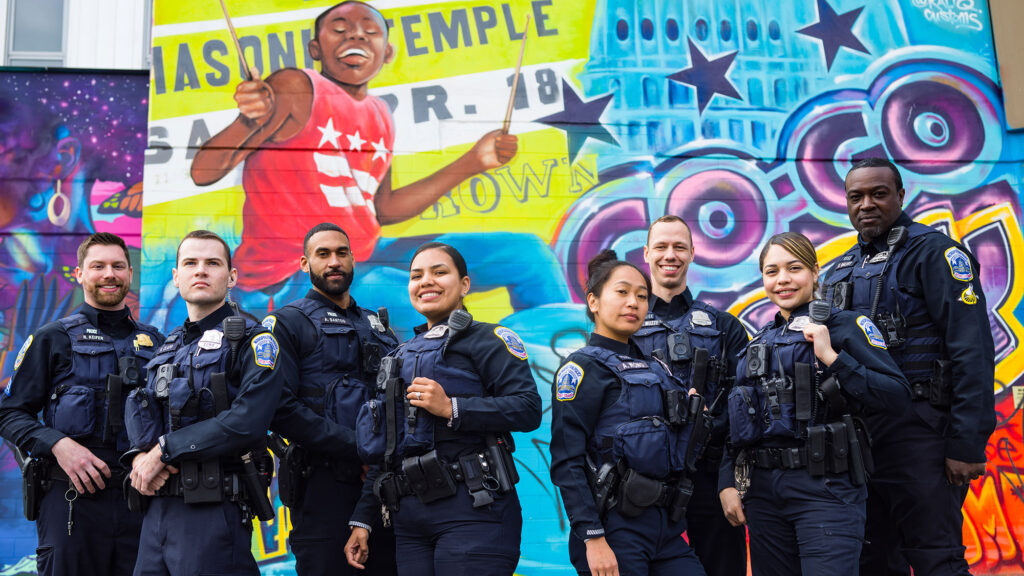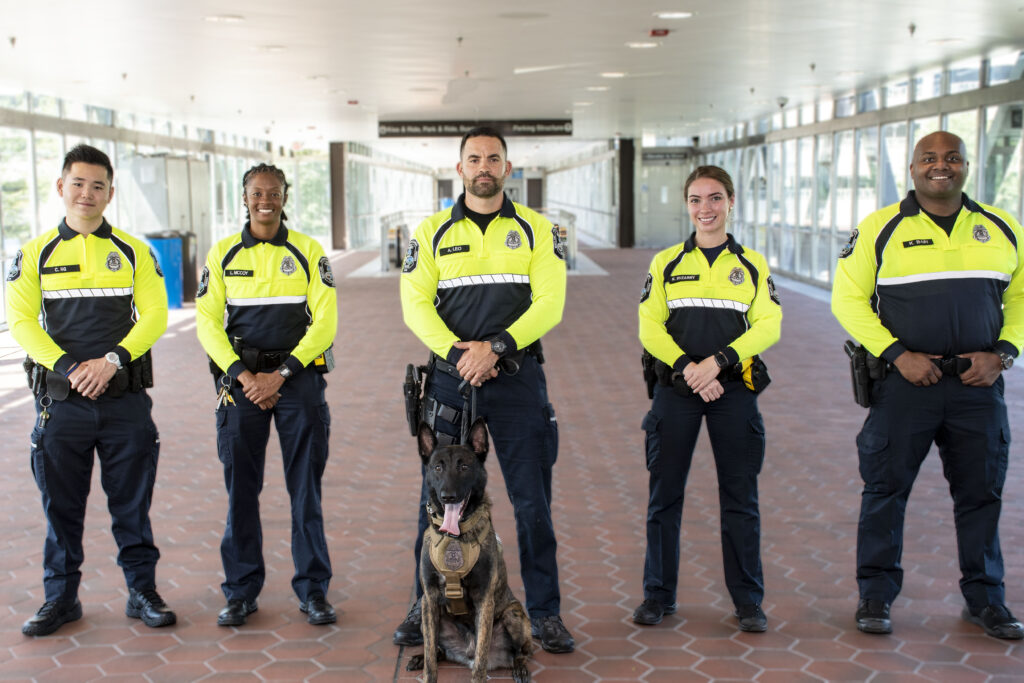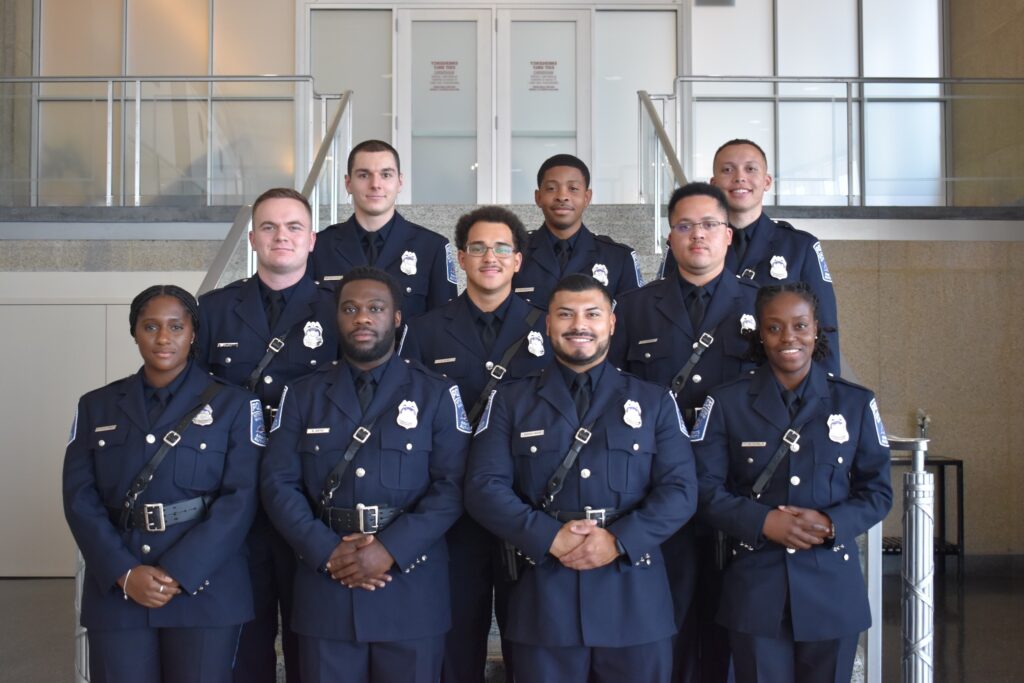Winding through the busy veins of the Washington DC Metro, stand the Washington DC Metro Police, tall and alert in their black and orange uniforms, guarding the safety and security of the city. Picturize a group of dedicated officers, day and night patrolling platforms, monitoring trains, and attending to emergencies with speed and professionalism.
Related Post –
DC Metro Police Department
A Diverse Mosaic: Fair as the Metro itself reflects the dynamic embroidered artwork of DC’s inhabitants, so as well does the police constrain. Officers salute from all strolls of life, bringing a riches of social and etymological foundations to the table. This differences fortifies their capacity to put through with travelers from all corners of the city, guaranteeing everybody feels seen, listened, and ensured.
Beyond the badge: Their activity is much extra compared to applying regulation. DC Metro Police Function Ambassador, Supply of directions to lost riders, supply of nerves to the veins at some level in delay, or even a supporting hand supplied with directions or only a smile. They are the face of humanity in the metro, which they serve, holding faith and relationships.
Always on alert: But in any way their vigilance stumbles. Whether preventing criminal activity, responding to clinical crises, or transferring with a hurry to stabilize the location in a sudden disaster, DC Metro Police is omnipresent, in any way they do not have the will for the safety of the public. Their presence makes an experience safe in the middle of the frenzied motion of the underground city, how skilled officers are ready to make every trip easy and stable.
Commuter Care Partner: They do hand paintings with various businesses, from firefighters and paramedics to transit officers, mash their abilities to deal with some things. This community of cooperation guarantees a direct and coordinated response, no matter what the undertaking.
DC Metro Transit Police
Picture of a city within a city, lively living and complete humans. This mystery, built under the streets of Washington DC, is the world of DC Metro Transit Police (MTPD). This subtrenian maze is a vigilant protector, he is a scared stronghold of safety and safety.
A symphony of uniform: MTPD is a tapestry of the range, which reflects the colored pulse of the city. Authorities remind us of extraordinary ethnicity, background and life walks, their unbreakable dedication from their black and orange uniforms. This diversity is their energy, allowing them to bridge the cultural interval and connect with the travelers from every corner of the metropolis.
More than the promoters of the law: their role only moves policing. They are the first respondent, dashing scientific emergency situations, calm concerns at some points of delay, and provide a stable hand in examples of uncertainty. Police ambassadors, navigating wrong passengers, provide guidelines, and lend a pleasant smile to illuminate someone’s day. They are going to solve the problem, working to prevent crime, interfere with conflicts, and ensure that all people feel safe and revered.
Ever-Vigilant Protectors: Under the cool rhythm of metro, MTPD is constantly on the shield. Their attentive eyes test platforms, their presence discouraged crime, and their sharp reaction to emergency situations order for any stunning landscape. They are silent heroes, unseen guardians who stand behind each safe movement, each peaceful journey, reaching every sigh of measures as passengers reaches their places.
A network of support: They weave a security internet around the metro, originally participated with various companies. Firefighters, paramedics, transit officers-All paintings are hand-handed over with MTPD, creating a complex internet of assistance that reaches every nook in the underground city. This coordinated effort ensures that no matter that assignment, a sharp and integrated response is usually easy.
Metro Washington Airport Authority Police
When talking of the Metro Washington Air terminals Specialist Police (MWAA Police), you’re not fair talking almost another police constrain. These committed experts are the gatekeepers of two imperative doors to the nation’s capital, Reagan National Airplane terminal (DCA) and Dulles Universal Air terminal (IAD). Think of them as the primary line of defense, guaranteeing the security and security of millions of travelers and endless representatives each year.
A unique jurisdiction: Contrary to the pressure of its standard city police, MWAA police works within a unique scope. Their jurisdiction extends to the amount of airport terminals, nearby roadways, or even three separate counties. This complex environment demands officers with several skills, which are able to handle terrorism and emergency response completely with the help of site visitors and passengers.
More than eyes: Do not be foolish with the help of their sharp uniform and unwavering professionalism. MWAA police are more than just security guards. They are network builders, which form relations with workers, holidays and the body of the citizens of the surrounding citizens. They are due to trouble, navigating the diverse desires of the atmosphere of a stirring airport with a peaceful performance and quick thinking. And they are ambassadors, demonstrating high-quality for traffic from around the high-quality arena of American hospitality.
Special units: Effectively to deal with the huge chains of challenges faced by them, the MWAA police boast more than certain tools. For explosive detection detection K-9s and a dedicated special weapon team for dog petrol devices and a strong criminal investigation division, those officers are equipped to deal with any state that arises.
Beyond the airports: Their receipt is spread beyond terminals. The MWAA police also provides security and safety offerings on the dual toll road and duals airport access highway, ensuring that the easy site goes with visitor flows and help the motor drivers.
Unseen Guardians: So, the another time you breeze through security at DCA or IAD, keep in mind the noiseless heroes in blue. The MWAA Police are the concealed spine of a secure and proficient discuss travel encounter. They stand protect at the doorsteps of the nation’s capital, guaranteeing each flight takes off and lands with the peace of intellect you merit.
How to Do DC Metro Police Reports
- Incident Description: Start by entering information about important events including date, time and area.
- Nature of the Incident: clearly the form of event (e.g, robbery, attack, barbarity).
- Description of Incident: Provide a brief and factual details of whatever has been passed to include any relevant information or functions.
- Witness information: Get name, contact facts and statements from any witness gift.
- Suspect Information: Record any detail about suspects (s), including physical details, clothes, and any known identity.
- Evidence: Any evidence is collected on the scene, with visual, motion paintings, or physical objects.
- Injuries or Damages: Take into account any injury or loss due to the phenomenon.
- Actions Taken: Describe any action taken with the help of officials at the scene, arrests were included, scientific assistance, or evidence stored.
- Officer’s information: Include the names and badges numbers of the officers answering.
- Supervisor Approval: Ensure that the report is reviewed and presented by a supervisor.
- Accuracy and clarity: Re -check all records for accuracy and make sure that the file is definitely written and widely written.
- Submission: Submit the full file through appropriate channels in DC Metro Police Branch.
DC Metro Transit Police Jobs
| Job Title | Salary Range | Job Description |
| Transit Police Officer (Entry-Level) | $58,000 – $68,000 per year |
Enforce laws, patrol Metro stations and trains, ensure passenger safety.
|
| Transit Police Sergeant | $68,000 – $85,000 per year |
Supervise officers, coordinate security operations, conduct investigations.
|
| Transit Police Lieutenant | $85,000 – $100,000 per year |
Oversee multiple units, manage incidents, and ensure policy compliance.
|
| Transit Police Captain | $100,000 – $120,000 per year |
Lead larger divisions, develop strategic plans, and oversee major investigations.
|
| Transit Police Investigator | $70,000 – $90,000 per year |
Conduct criminal investigations, gather evidence, and work on specialized cases.
|
| Transit Police K-9 Officer | $60,000 – $75,000 per year |
Work with trained dogs to detect explosives, patrol, and ensure safety.
|
| Transit Police Detective | $75,000 – $95,000 per year |
Handle complex investigations, gather intelligence, and solve crimes.
|
| Transit Police Communications Officer | $50,000 – $65,000 per year |
Operate communication systems, dispatch units, and manage emergency calls.
|
| Transit Police Administrative Assistant | $40,000 – $55,000 per year |
Provide administrative support, manage records, and assist with daily operations.
|
| Transit Police Training Officer | $65,000 – $80,000 per year |
Train new recruits, conduct ongoing education, and ensure policy adherence.
|


